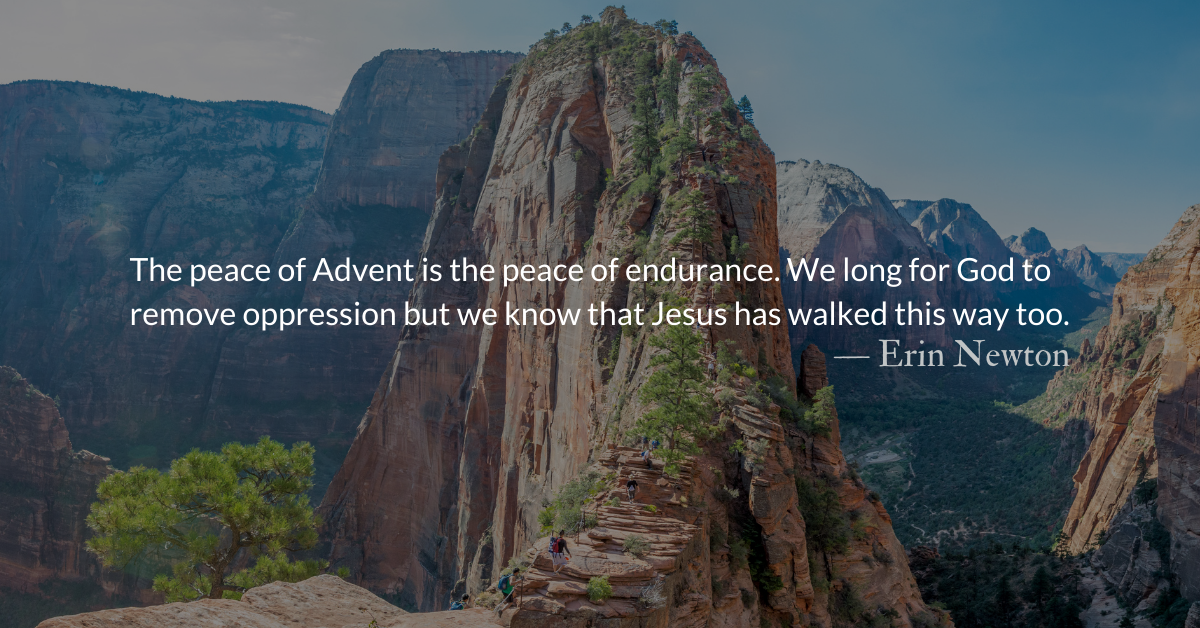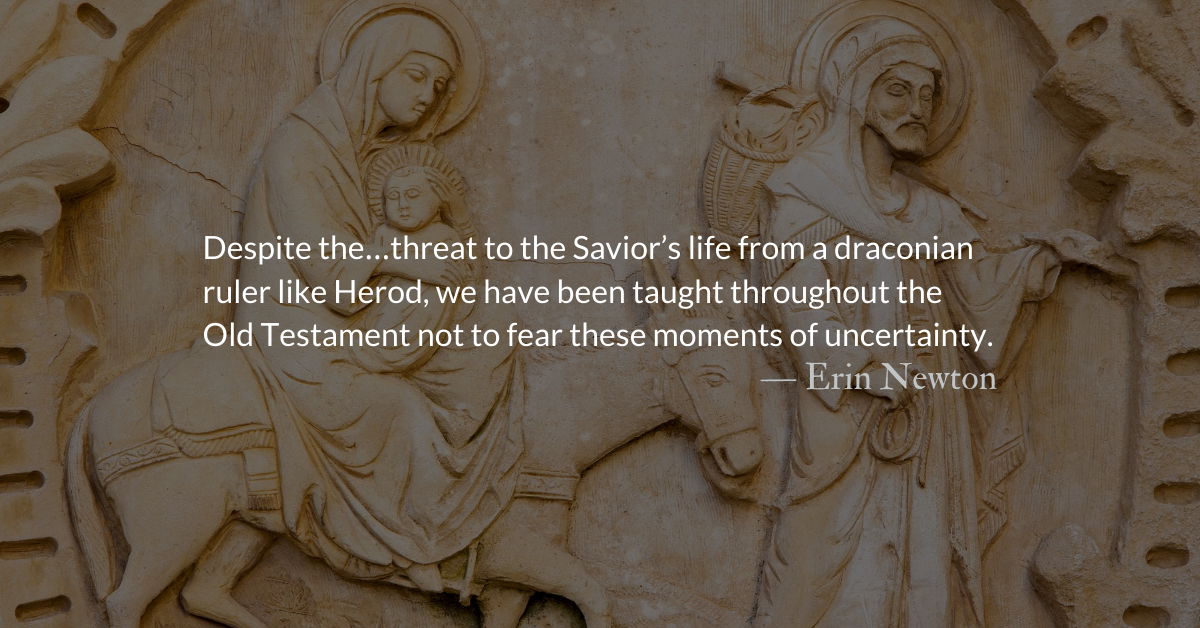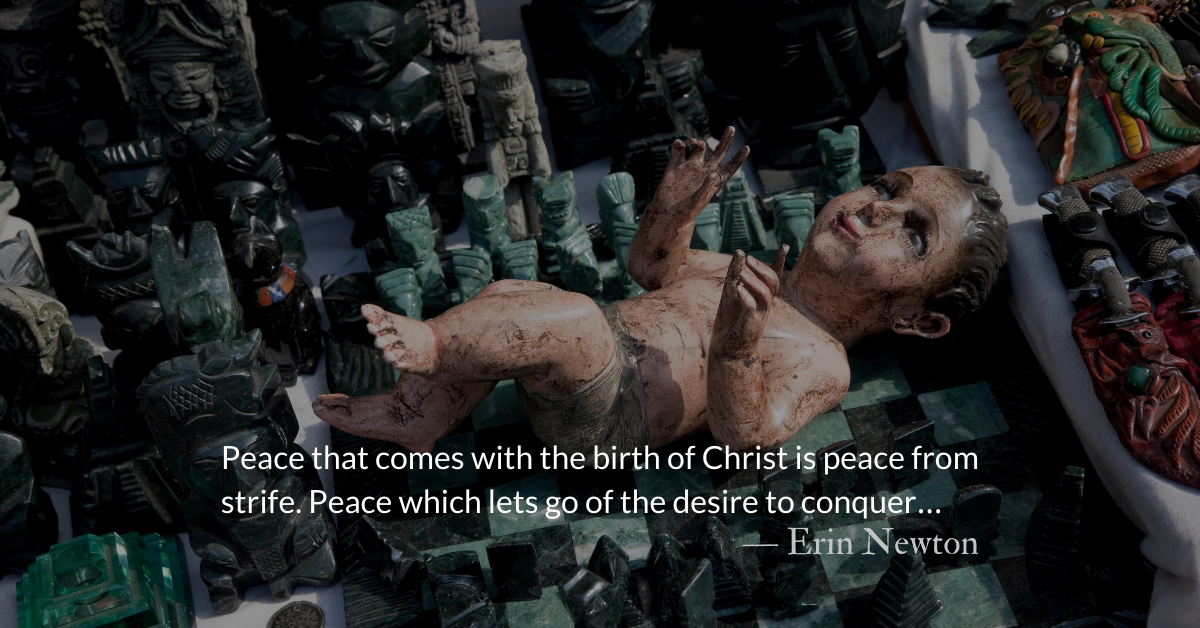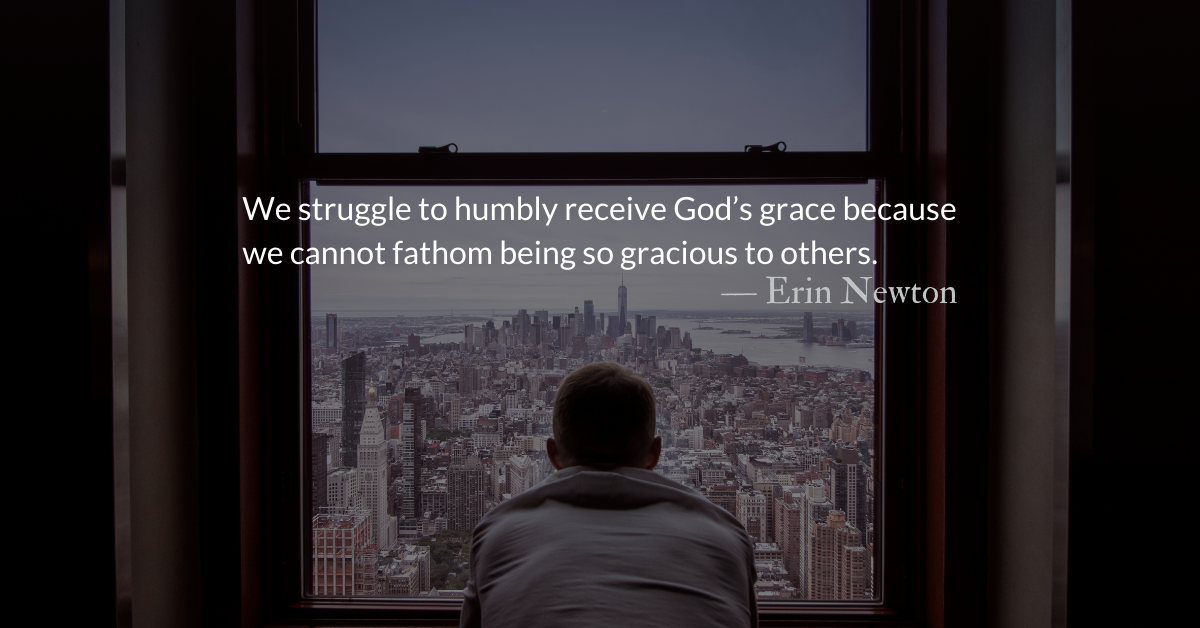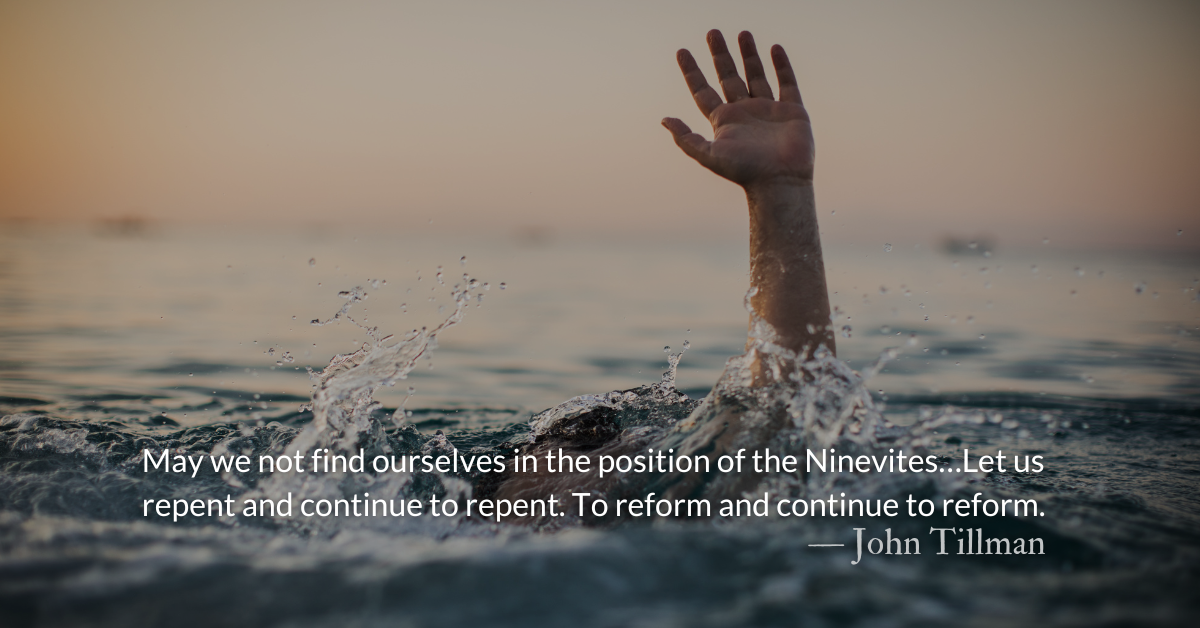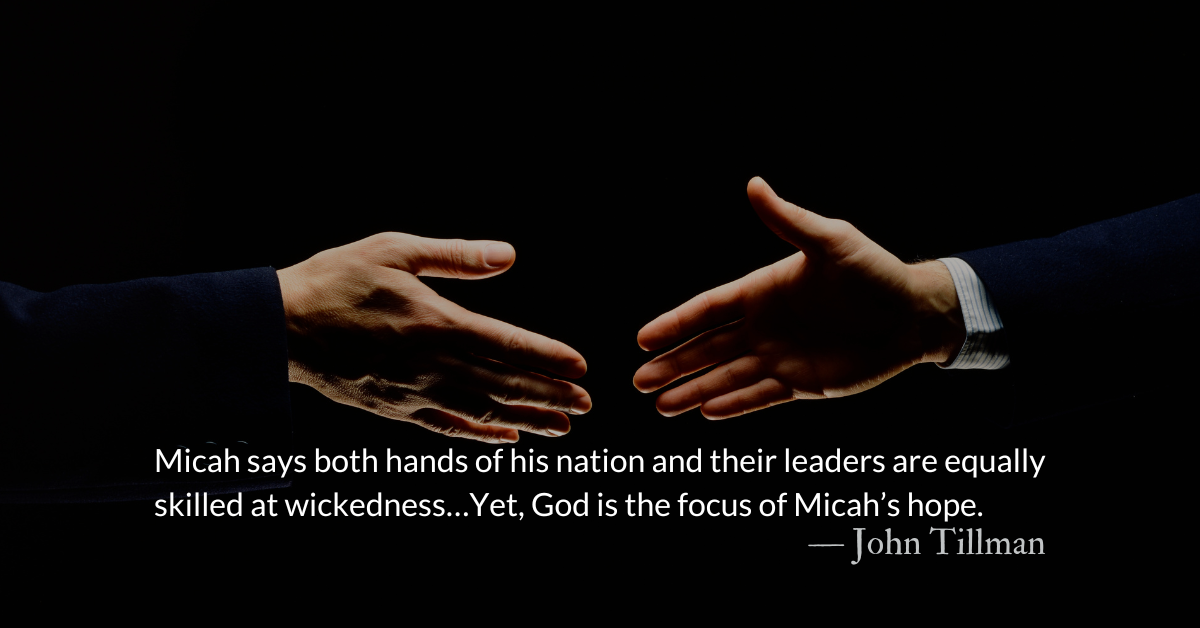Scripture Focus: Revelation 13:10
…This calls for patient endurance and faithfulness on the part of God’s people.
Reflection: Peace of Endurance — Peace of Advent
By Erin Newton
The apocalyptic vision in Revelation continues with a picture of the suffering of God’s people. It is a painful scene of oppression and injustice. Believers are called upon to accept the hard paths they are on, even to captivity or death. It is with endurance, patience, and faithfulness that they are commanded to face their circumstances.
As mentioned earlier this week, the Roman Empire had been through a series of wars in which Israel also suffered the pain and consequences of a dysfunctional society. They are ruled by a psychotic leader who seeks to kill any opposition to his throne even if the threats are toddlers.
The death of Herod was a momentary glimmer of hope for the safety of Jesus. However, as corrupt political systems go, one bad leader was replaced with another. Archelaus must have had a reputation like his father to prompt Joseph to fear returning to Judea. The family settled in another town further from their original home to patiently wait for the unfolding of God’s plan.
Bound to the rules, regulations, and rage-filled killing sprees, the Jews lived in a world that was corrupt and oppressive. Roman regulations sowed division within the Jewish population when some joined Rome, collecting taxes from friends and family. Into a world of corruption, the Savior was born. His tiny body was bound by the slow progress of time. In time, he would grow into adulthood and begin teaching the crowds or healing the sick.
We, too, live within a corrupt world where God’s people quickly turn on one another for profit or exercise of power. Our hearts groan as we endure the suffering and hardship. Like the hymns of Advent remind us, we eagerly and longingly await the Savior. We see that he, too, was born within a corrupt system.
The peace of Advent is the peace of endurance. We long for God to remove oppression but we know that Jesus has walked this way too. There is great comfort in remembering that Jesus laid aside the divine right to be free from pain and suffering. Instead, he chose to be born in a helpless frame in a corrupt system and wait for decades to grow. As the great hymn says, His law is love and his gospel is peace.
Chains shall He break
for the slave is our brother
And in His name
all oppression shall cease.
Music: “O Holy Night,” recording, Sara Groves, 2008
Divine Hours Prayer: The Request for Presence
I cry out to you, O Lord; I say, “You are my refuge, my portion in the land of the living.” — Psalm 142.5
– From The Divine Hours: Prayers for Autumn and Wintertime by Phyllis Tickle.
Today’s Readings
2 Chronicles 26 (Listen – 4:00)
Revelation 13 (Listen – 3:20)
Read more about Supporting our Work
We are thankful for our donors’ gifts because they contribute to improving the spiritual discipleship of readers around the globe.
Read more about Consolation and Patience — Joy of Advent
Like those “under the altar” we are comforted in our waiting and suffering. We seek and receive consolation from God himself.

